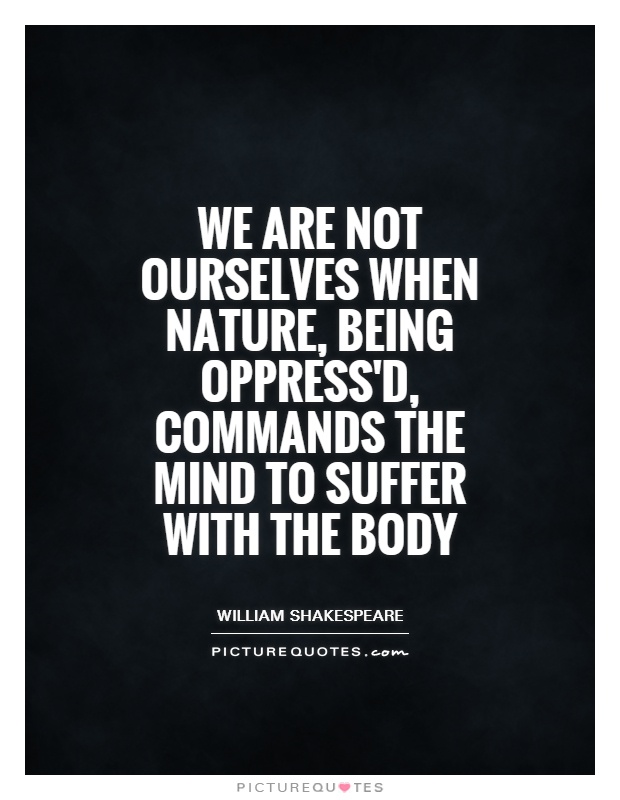We are not ourselves when nature, being oppress'd, commands the mind to suffer with the body

We are not ourselves when nature, being oppress'd, commands the mind to suffer with the body
In William Shakespeare's works, the relationship between nature and human emotions is a recurring theme that is explored in various ways. One of the most profound expressions of this connection can be found in the quote, “We are not ourselves when nature, being oppress'd, commands the mind to suffer with the body.” This line, spoken by the character Ulysses in the play "Troilus and Cressida," highlights the idea that when nature is in turmoil or under duress, it can have a profound impact on the human psyche.Throughout Shakespeare's plays, nature is often personified as a powerful force that can influence human behavior and emotions. In many of his works, characters are shown to be deeply affected by the natural world around them, whether it be through the changing of the seasons, the movement of the stars, or the power of the elements. Shakespeare often uses nature as a metaphor for the inner turmoil and conflict that his characters are experiencing, showing how external forces can shape and mold their thoughts and actions.












 Friendship Quotes
Friendship Quotes Love Quotes
Love Quotes Life Quotes
Life Quotes Funny Quotes
Funny Quotes Motivational Quotes
Motivational Quotes Inspirational Quotes
Inspirational Quotes